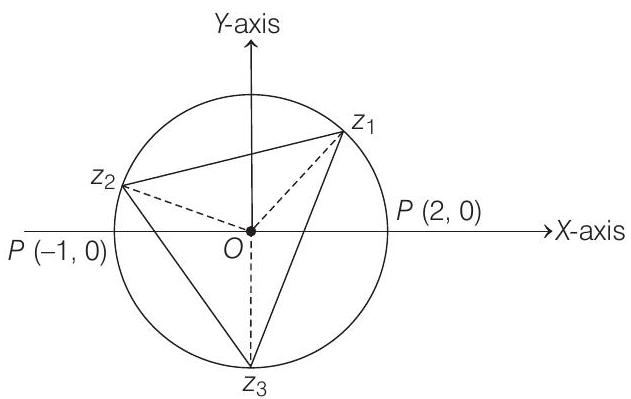Complex Numbers 4 Question 9
9. Suppose
(1994, 2M)
Show Answer
Answer:
Correct Answer: 9.
Solution:
[let]
So,
Since,
[given]

Now, the triangle
Therefore,
and
Therefore,
and
Alternate Solution
Whenever vertices of an equilateral triangle having centroid is given its vertices are of the form






